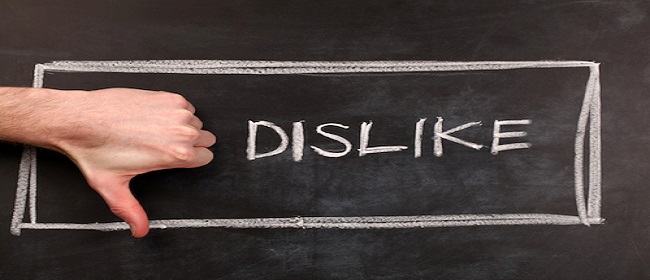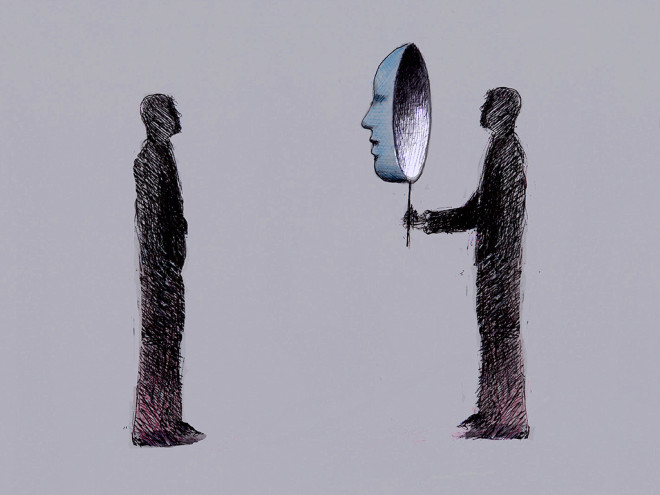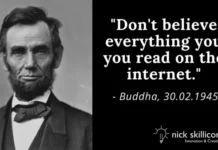
Social media offers great power to connect with old and new friends and relatives. It is a powerful communication tool to inspire and empower citizens of the world to unite and effect social change. But, with great power comes greater idiocy — accept it.
Accept it — you all are stretching the social media boundaries to stand out online and in the process losing sight of your common sense; you all are abusing Facebook, Twitter, Instagram, Pinterest, Snapchat, and Vine and in the process damaging your reputation and jeopardizing your career opportunities.
While it is perfectly fine to do gossip-mongering on social media, here’re 6 really obnoxious things you need to immediately stop doing on Facebook and Twitter — or any other social media platform — in order to keep your sanity and character intact…
Stalking You Ex
YES, checking up on your ex-boyfriend or ex-girlfriend on social media IS stalking. Resist the urge to look at your ex’s Facebook page after your breakup. Using social media for reassurance — spying on your exes hoping to see them as miserable as you are — can be bad for your health, compound the pain of the breakup, obstruct the process of healing and moving on with life.
A 2012 study conducted at Brunel University confirmed that remaining Facebook friends with a former romantic partner and checking his or her Facebook profile is associated with continuing breakup-related distress, negative feelings, desire for the ex-partner, and inhibited personal growth.
Creating An Ideal Online Persona
What do you present to your online audience: your real self or your ideal self? Social media effect not just creates a false and inflated sense of self and self-esteem, when you deviate from your real self and present your hyper-idealistic version on social media, it leads to psychological problems and even warrants counseling and treatment.
A 2015 study conducted by a team of researchers from Israel, University of Southern California, and California State University concluded that high degrees of falseness can result in precarious functioning and psychological vulnerability which ultimately can lead to psychological pathologies.
Comparing Yourself To Others
The Huffington Post writes:
When you compare yourself to others, you are comparing yourself to the perception of what you think the person is. In reality, many people are presenting only their ideal selves online. Therefore, you are comparing yourself to an ideal figure, not a true representation.
Comparing your lives to a perfectly constructed image of someone else on Facebook can cause emotional distress, even mental problems. In a 2015 study conducted at University of North Carolina, adolescents, who reported engaging in more social comparison and feedback-seeking behavior online, experienced depressive symptoms a year later. A 2014 study conducted at American University found a link between Facebook photo activity and body image disturbance in adolescent girls.
Posting Things To Get Approval
While it feels great to gauge your self-worth by the number of likes, favorites, re-tweets, or comments you get on Facebook & Twitter, the feeling of rejection from not getting them is often greater. A Common Sense survey in 2015 found that children’ consumption of social media puts them at risk of developing unhealthy approaches to their bodies. 35% teens surveyed were worried about people tagging them in unattractive photos, 27% felt stressed about how they looked in posted photos, and 22% felt bad about themselves if their photos were ignored.
Remember Selfie, ABC’s 2014 comedy series about a self-obsessed woman in her 20s who was more concerned with her followers than her friends on social networking sites, but decided to learn how to live offline when she realized the difference between virtual and real friends?
Poking Fun, Spreading Hatred
There is a difference between having an unpleasant opinion and constructive criticism. When you spend a lot of time on Facebook & Twitter, you inevitably see users sharing their views on current political situation of your country, religious intolerance, or discussing celebrity comments about a sensitive topic. While it is perfectly fine to disagree with popular belief, when you are unwelcoming to hear divergent voices and opposing opinions, you start to post comments fuelled by spite, anger and hatred.
The Pew Research Internet Project concluded in a 2014 study that people tend keep their opinions to themselves when they believe listeners are likely to disagree with them. If you still want to engage in conversations, stay away from these two extremes or exercise restraint.
Replacing Socialization With Social
Socialization is a continuing process whereby an individual acquires a personal identity and learns the appropriate norms, values, behavior and social skills. But if over a billion people are attached to social media and heavily influenced by it, how can socialization begin?
Once you start to take part in virtual interactions, your individual behaviors and attitudes being to alter. From excessive use of social media, you can form anxiety, depression, loneliness, and emit emotions and attitudes you never had before. Larry Rosen, professor of psychology at California State University-Dominguez Hills, conducted a study in 2011 that displayed a higher risk of antisocial behavior and paranoia development among frequent Facebook users, particularly within young adults.
This article (The 6 Biggest Social Media Sins You Must Avoid Committing) is free and open source. You have permission to republish this article under a Creative Commons license with attribution to the author and AnonHQ.com.









